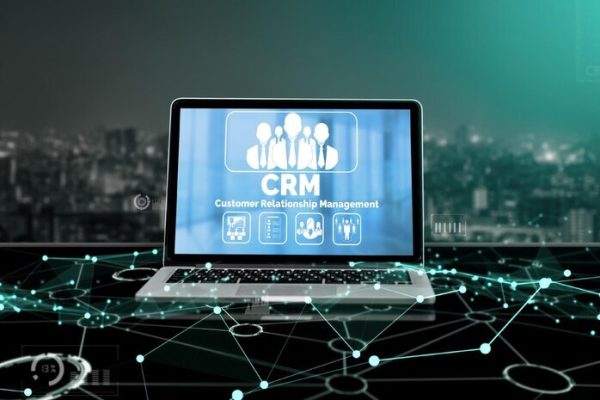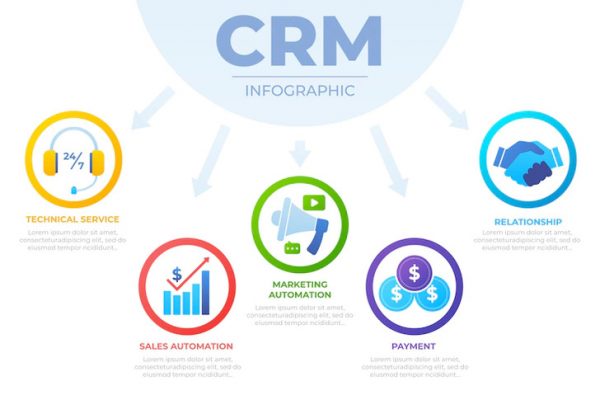What is the difference between customer relationship management and supply chain management system? Supply chain management and customer relationship management are two of the most important applications that a business can make use of in order to improve its operations. The two work together and can be utilized to keep track of information that is essential to determining the viability of the company.
The main difference between the two is that CRM is focused on keeping track of customer interactions in comparison to supply chain management, which focuses on tracking the flow of products and services within a company.
The main goal of supply chain management is to ensure that a business has just enough inventory to be able to meet the needs of its customers. This means that employees need to be aware of what products are available, where they are located, as well as if there is any damage or defect in them that needs to be addressed.
Besides, a supply chain management system helps coordinate the flow of materials, information and finished goods in order to satisfy customer orders.
Supply chain management systems focus on planning, organizing and integrating all components of a company’s production process, from manufacturing through distribution.
In contrast, customer relationship management systems are designed to manage customer interactions with your business.
Customer relationship management systems store information about each customer’s history with your company and identify the best ways to provide customer support.
SCM Vs CRM: Uses
A supply chain management system is integrated software that allows your businesses to identify, plan, and manage the flow of goods and services from point A to point B.
In other words, SCM is software that is used across entire businesses to connect the dots and make sure your inventory and resources are aligned from the customer all the way back to their supplier.
The customer relationship management software is used to help you manage your customers and identify what type of customer experience will help your business succeed.
SCM Vs CRM: Benefits
Customer relationship management (CRM) is a system that helps organizations to manage interactions with customers. And supply chain management (SCM) is a process to ensure the effective flow of information, material, and finances from the suppliers to the end customers. Now let’s take a look at the key benefits:
Supply Chain Management
There are many benefits to supply chain management. Here are four of the most important ones:
1. Improved customer service – In order to improve customer service, companies are tasked with managing the supply chain. The goal is to eliminate waste and reduce costs so that more money can be spent on improving customer service. If a company is not managing its supply chain properly, it may not be able to offer the best customer service possible.
2. Cost savings – There are many cost savings when it comes to supply chain management. For one, companies will only produce what is necessary. This means that if there is a surplus of a certain product, it will not necessarily be produced because that product is not needed. This also means that products are manufactured in the most efficient way possible so it will cost less to produce and ship that good.
3. Efficient shipping – Managing the supply chain also means that the right things get shipped at the right time. If the right thing isn’t being shipped at the right time, then this can lead to extra costs, which will hurt a company’s bottom line in the long run.
4. Reduced inventory – When you have a reduced inventory, this helps you save space and money. In addition, you can carry less insurance because your business has less risk of carrying large amounts of inventory worth millions of dollars if you happen to experience a natural disaster or fire.
Customer Relationship Management
Customer relationship management, or CRM, is a system that integrates multiple technologies into one place for a cohesive customer experience. The system can take in information from different channels and use that information to deliver relevant content to customers. There are several benefits to having a CRM.
We know from experience that communicating with your customers on a consistent basis is often time-consuming and expensive. In fact, the average cost to acquire a new customer is estimated to be between $400 and $1,000. With CRM how to provide professional customer service?
Recognizing that it’s more important than ever for businesses to have a dedicated resource to manage customer relationships and interactions. With CRM included at no additional charge in base, you can:
- Send email messages to customers who are not currently connected with Base.
- Set up a calendar to track when you send messages and which customers receive them.
- Create lists of your contact details by category or view all contacts at once.
- Set up mobile notifications so you never miss an opportunity to connect.
- Immediately see the status of outgoing messages, including the number of customers that were notified.
- Automatically sync your contacts from Gmail, Google Apps, iCloud or cloud storage provider Box.
- Use your Base data (contacts, calendar events, tasks) in Microsoft Outlook for improved productivity.
- Export your data for backup or further analysis in a spreadsheet.
The HubSpot CRM is available at no additional cost on all plans and requires the Base account for access. Click here to see the best CRM for business.
SCM Vs CRM: Which One Do I Need?
While some people might consider the big debate in sales and marketing today, which is: should I use an SCM or CRM system? You can create efficient sales and marketing campaigns by using both systems.
The key role of the system is generating qualified leads. When it comes to generating leads, you have two possible ways to do that.
With SCM, the salesperson takes care of the sales process itself, while with CRM the salesperson’s tasks are to help the marketing specialist select the right leads. If you want to build the build best customer service and get more sales, leads and revenue then you integrating the Hubspot CRM can be a game-changer for your business.





